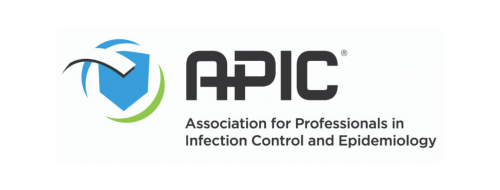APIC Condemns HHS Proposal to Silence Public Input on Health Policies
HHS’s move to eliminate public input on health policies threatens patient safety and infection prevention. APIC demands transparency, accountability, and urgent action to protect public health.
The Association for Professionals in Infection Control and Epidemiology (APIC)
(Logo credit to APIC)

The Association for Professionals in Infection Control and Epidemiology (APIC) has expressed deep concern and opposition over the Department of Health and Human Services (HHS) attempt to rescind its policy on public participation in rulemaking, known as the Richardson Waiver. This unprecedented move, put forth in the Federal Register, seeks to strip the public of its right to comment on federal health regulations, posing a dangerous threat to transparency, accountability, and public health.
For decades, public participation has played a crucial role in shaping HHS policy. Health care providers, researchers, patient advocates, and public health professionals have had the ability to provide valuable, real-world insights on federal decisions that directly impact patient care and safety. By eliminating this right, HHS is taking an alarming step backward, creating policies in isolation without critical input from the professionals who implement infection prevention strategies, manage disease outbreaks, and protect patient safety.
The proposal comes as emerging infectious diseases, antimicrobial resistance, and health care-associated infections (HAIs) continue to pose serious threats to public health. More than ever, evidence-based policymaking is essential to combat infection risks in hospitals, long-term care facilities, and other health care settings. By silencing public input, APIC says that HHS risks weakening infection prevention efforts, hindering outbreak response, and increasing patient harm.
APIC opposes any policy that restricts health care professionals, patient advocates, and scientists from participating in regulatory decision-making. Infection preventionists (IPs), who work daily to protect patients from preventable infections, must have a seat at the table when federal health regulations are developed.
Carol McLay, DrPH, MPH, RN, CIC, FAPIC, FSHEA, president of APIC, said, “This change poses a serious risk for IPs, who rely on transparent and evidence-based policymaking to safeguard patient safety and public health. The ability for health care professionals, patient advocates, and the general public to provide input on federal regulations is a cornerstone of responsible policymaking. Public participation ensures that regulations are shaped by those directly affected, incorporating real-world insights from the front lines of health care to drive better outcomes and improve patient care. Curtailing this process undermines trust and risks creating policies that fail to reflect the realities of patient care.”
The administration’s move contradicts Health and Human Services Secretary Robert F. Kennedy Jr.’s repeated promises of “radical transparency” in government health policy. Instead of open dialogue and collaboration, the administration is attempting to shut out experts, silence dissenting voices, and eliminate essential public oversight.
Public input is essential for policymaking, safeguarding against uninformed regulations, public health failures, and policies that ignore real-world challenges. Excluding health care professionals and patient advocates increases the risk of regulatory issues missteps.
APIC is calling on HHS to immediately reverse its proposal and reaffirm its commitment to public participation, transparency, and accountability in health policy. Ensuring broad stakeholder engagement is fundamental to protecting public health and developing effective infection prevention strategies.
Now is the time for health care workers, researchers, and patient advocates to demand accountability from HHS.
- Contact your state and federal representatives to oppose the rescission of the Richardson Waiver.
- Sign petitions and support advocacy efforts that promote public input in health policy.
- Spread awareness about this alarming proposal to ensure the public understands the risks.
- Engage in professional associations, such as APIC, to support initiatives that protect public health decision-making.
Public health decisions should never be made behind closed doors. Infectious disease threats are constantly evolving, and silencing those on the front lines of infection prevention is a recipe for disaster. APIC stands firm in its commitment to protecting public participation in health policymaking because when health care professionals and the public are excluded, patient safety suffers.
Newsletter
Stay prepared and protected with Infection Control Today's newsletter, delivering essential updates, best practices, and expert insights for infection preventionists.
Reducing Hidden Risks: Why Sharps Injuries Still Go Unreported
July 18th 2025Despite being a well-known occupational hazard, sharps injuries continue to occur in health care facilities and are often underreported, underestimated, and inadequately addressed. A recent interview with sharps safety advocate Amanda Heitman, BSN, RN, CNOR, a perioperative educational consultant, reveals why change is overdue and what new tools and guidance can help.
New Study Explores Oral Vancomycin to Prevent C difficile Recurrence, But Questions Remain
July 17th 2025A new clinical trial explores the use of low-dose oral vancomycin to prevent Clostridioides difficile recurrence in high-risk patients taking antibiotics. While the data suggest a possible benefit, the findings stop short of statistical significance and raise red flags about vancomycin-resistant Enterococcus (VRE), underscoring the delicate balance between prevention and antimicrobial stewardship.
What Lies Beneath: Why Borescopes Are Essential for Verifying Surgical Instrument Cleanliness
July 16th 2025Despite their smooth, polished exteriors, surgical instruments often harbor dangerous contaminants deep inside their lumens. At the HSPA25 and APIC25 conferences, Cori L. Ofstead, MSPH, and her colleagues revealed why borescopes are an indispensable tool for sterile processing teams, offering the only reliable way to verify internal cleanliness and improve sterile processing effectiveness to prevent patient harm.
The Next Frontier in Infection Control: AI-Driven Operating Rooms
Published: July 15th 2025 | Updated: July 15th 2025Discover how AI-powered sensors, smart surveillance, and advanced analytics are revolutionizing infection prevention in the OR. Herman DeBoard, PhD, discusses how these technologies safeguard sterile fields, reduce SSIs, and help hospitals balance operational efficiency with patient safety.
Targeting Uncertainty: Why Pregnancy May Be the Best Time to Build Vaccine Confidence
July 15th 2025New national survey data reveal high uncertainty among pregnant individuals—especially first-time parents—about vaccinating their future children, underscoring the value of proactive engagement to strengthen infection prevention.